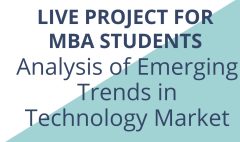Navigating Legal Landscapes
Navigating Legal Landscapes
Unearth the critical role of legal compliance and corporate governance in the mining sector. Learn how MBA graduates can lead with integrity, ensuring ethical and regulatory adherence in global operations.
Introduction: The mining industry operates under a microscope of stringent regulations, ethical considerations, and public scrutiny. For MBA graduates stepping into this sector, understanding and navigating the legal landscapes becomes as fundamental as operational efficiency. Compliance isn’t just about following laws; it’s about integrating ethical standards, environmental stewardship, and social responsibility into the corporate fabric. This article illuminates the complexities of compliance and governance in mining and underscores the strategic leadership role of MBAs in upholding these pillars, safeguarding not only their organizations but also the communities and environments they touch.
Complexities in Mining Compliance:
- Environmental Regulations: Adhering to global and local environmental laws, from waste disposal to land rehabilitation.
- Labor Laws: Ensuring worker safety, fair labor practices, and human rights adherence within global operations.
- Financial Compliance: Meeting financial reporting requirements, anti-corruption laws, and international trade regulations.
- Community Engagement: Balancing profit pursuits with community rights, indigenous claims, and social development.
MBA at the Helm:
- Ethical Leadership: Embodying ethical principles in decision-making, setting the tone for organizational integrity and public trust.
- Strategic Compliance: Integrating compliance and governance into business strategy, mitigating risks, and fostering sustainable growth.
- Global Perspective: Understanding diverse legal frameworks across operational regions, ensuring cohesive compliance in multinational ventures.
- Stakeholder Engagement: Engaging with stakeholders — from local communities to global regulators — to build transparent, accountable relationships.
Pathways to Robust Governance:
- Compliance Training: Implement regular training programs to keep staff updated on legal changes, ethical standards, and internal policies.
- Technology Utilization: Leverage technology for compliance management, from data analytics in environmental monitoring to AI in legal research.
- Sustainability Reporting: Adopt comprehensive reporting on sustainability performance, reinforcing transparency, and accountability.
- Continuous Improvement: Encourage a culture of continuous improvement and openness to change, aligning practices with evolving legal and ethical standards.
Essential Resources:
- “The International Council on Mining and Metals (ICMM)” ( https://www.icmm.com/en-gb) offers guidelines on sustainable mining practices and governance.
- “The Extractive Industries Transparency Initiative (EITI)” ( https://eiti.org/) promotes open and accountable management of oil, gas, and mineral resources.
- “The Mining Law Review” ( https://thelawreviews.co.uk/title/the-mining-law-review) provides insights into international mining regulations and legal frameworks.
- Online courses like “Corporate Compliance: Ethics, Governance, and Risk” on Coursera ( https://www.coursera.org/learn/corporate-compliance) can deepen your understanding of organizational ethics and compliance.
Conclusion: Compliance and governance in mining transcend regulatory adherence; they’re about leading with integrity, honoring commitments to various stakeholders, and forging a path of sustainable, ethical growth. As an MBA graduate, you wield the power to influence corporate culture, operational ethos, and global perceptions of the mining industry. By championing compliance, you’re not just ticking boxes; you’re steering your organization toward a legacy of trust, responsibility, and positive global impact.








